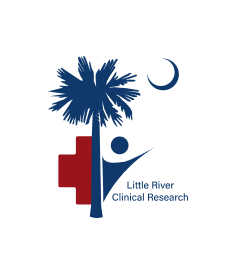
Introduction
Conducting scientific research that involves human participants requires standards. Therefore, good clinical practice (GCP) is a research and international, ethical, and scientific quality standard.
In this guide, let’s explore the three essential GCP principles and their relevant key terms.
GCP Principles-What are the 3 Main Good Clinical Practice (GCP) Principles?
Good Clinical Practices refer to the ethical and scientific quality guidelines for conducting clinical trials or research involving human individuals. Good Clinical Practice (GCP) principles comprise the foundation of all research. It ensures every clinical study’s validity, precision, and high caliber. Moreover, it ensures every clinical study’s validity, precision, and high caliber. Due to GCP standards, the rights and welfare of trial participants are ensured.
Let’s start with GCP Principles:
Ethical Conduct in Clinical Trials
Ethics are the foundation of any clinical or general research. However, human trials have gained significant importance. Therefore, GCP emphasizes protecting participants’ rights, safety, and well-being through ethical conduct. The core of ethical conduct lies in the concept of informed consent.
A clinical trial participant should receive comprehensive information about the study, including its purpose, procedures, and potential risks. Moreover, informed consent ensures that individuals have the autonomy to make an informed decision about their participation without force or manipulation.
There are some other significant points related to ethical considerations in GCP principles:
- Before joining a clinical trial, you should inform them clearly about all the good and bad things that might happen, what will happen, and how you will conduct a clinical trial.
- Participants must sign an “informed consent form” to show they understand and agree. It should depict that they have the right to leave the trail at any time.
- Before the trial begins, the risks and benefits need to be carefully considered. The clinical trial should only start if there are more good things than bad ones.
- Most importantly, the researchers must consider participants’ rights, safety, and health. Moreover, researchers should keep private information safe to keep the participants trusting them.
Certain regulatory bodies review and approve the ethical standards. To ensure compliance with established standards and regulations, these oversight bodies evaluate research protocols’ ethical, scientific, and regulatory aspects.
Data Integrity and Quality
What is next among the top GCP Principles?
Data integrity and quality, being the essentials for quantitative experiments, come next. Data integrity and quality are essential for generating reliable and credible findings in clinical research. Clinical trial data must adhere to rigorous standards and procedures to ensure accuracy, completeness, and reliability.
- Regulatory authorities should carefully review all the collected data to ensure it follows GCP principles. This guarantees the data’s credibility.
- Additionally, clinical trial information must be easy to understand and include all necessary details. This ensures that it can be accurately recorded, reported, and understood.
- Furthermore, you should store the data where you can easily access it whenever necessary. It ensures that it’s available for reference or further analysis when needed.
Additionally, monitoring and auditing are strategies for ensuring data integrity and quality throughout the study. Independent monitors and auditors review study protocols, data collection procedures, and adherence to GCP principles to identify and address any issues or discrepancies that may arise.
Regulatory Compliance
Last but not least, the top GCP principles are regulatory compliance.
Regulatory compliance occupies a central position in any experiment. Therefore, when the question comes to testing humans, these Good Clinical Practice principles have a special place.
Some points to consider while viewing GCP principles:
- Regulatory authorities review clinical trials and grant approvals before they can begin.
- After approval, investigators and sponsors keep regulatory authorities informed about how the trial is going.
- Regulatory authorities can approve, disapprove, or stop the trial if someone doesn’t follow ethical guidelines.
- Regulatory authorities evaluate the ethical protocols to ensure they meet the standards.
Researchers, sponsors, and institutions can face consequences if they do not comply with regulatory requirements. Additionally, it may result in regulatory sanctions, legal liabilities, and reputational damage. Therefore, all stakeholders involved in clinical research must hold high regulatory compliance standards throughout the research process.
What is ICH GCP Certification? Understanding in Detail
In 2024, getting GCP Certification is significant. It shows that a person knows a lot and is good at following the rules, especially in clinical trials.
The Good Clinical Practice principles consist of 13 fundamental points. It applies to all clinical studies that can impact the security and welfare of human subjects.
Some benefits include:
Professional Recognition
It acknowledges your expertise and proficiency in implementing regulatory guidelines in clinical research.
Career Advancement
GCP certification can enhance your career prospects by demonstrating your commitment to high standards in clinical practice.
Competitive Edge
It gives you an advantage over others in the field by showing employers and clients you have specialized knowledge and skills.
Compliance Assurance
It helps ensure that clinical trials you’re involved in meet ethical and regulatory standards, reducing the risk of non-compliance issues.
Enhanced Credibility
GCP certification enhances your credibility and trustworthiness among colleagues, employers, and stakeholders in the clinical research community.
Global Opportunities
GCP certification is recognized internationally. Therefore, it gives opportunities to work on a broader range of clinical trials worldwide.
Why is GCP Certification Required? How Can You Gain it?
As clinical research proceeds, you should possess certifications based on sound clinical practice principles. The straight reason for this is that you get a step closer to success. GCP certifications are crucial and not just merely a preference in clinical trials. When conducting clinical research, clinical research employees need to be certified to conduct scientific studies following the ICH criteria. Moreover, they should have a thorough understanding of them. Additionally, many businesses provide their staff certification courses before they start working.
How to Gain GCP Certifications?
Training Programs: Participate in GCP training programs that recognized organizations or institutions offer. These programs cover essential principles, guidelines, and regulations governing clinical research.
Online Courses
Complete online courses and modules specifically designed to provide GCP training. Many reputable organizations offer GCP courses that you can complete remotely.
Work Experience
Gain practical experience by working on clinical trials under the supervision of experienced professionals. Additionally, hands-on experience is valuable for understanding how to apply GCP principles in real-world settings.
Examinations
Some certification programs require passing an examination to demonstrate your understanding of Good Clinical Practice principles and regulations. Moreover, prepare for and complete the certification exam to obtain GCP certification.
Continuous Learning
Stay updated on developments in GCP guidelines and regulations through continuing education and professional development activities. Additionally, maintaining knowledge and skills in GCP is essential for retaining certification and ensuring compliance in clinical research.
Conclusion
To conclude, GCP principles comprise 13 basic ones. Among these top three good clinical Practices, principles hold central positions-—ethical conduct, data integrity and quality, and regulatory compliance. They are essential for ensuring safety, integrity, and reliability. Moreover, by adhering to these principles, researchers, sponsors, and institutions can uphold the highest standards of ethical and scientific integrity in their research pathways.
This blog provides a comprehensive guide on the top three GCP principles. It briefs its importance and how you can achieve expertise in the Good Clinical Practice principle. Moreover, it guides the pathway to gaining GCP certification.
Additionally, you can enroll in clinical trials and participate in a noble cause. If you live in Little River, South Carolina, contact Litter River Research today. We lead the way in healthcare advancements through innovative clinical trials at our research center in Little River, South Carolina.
